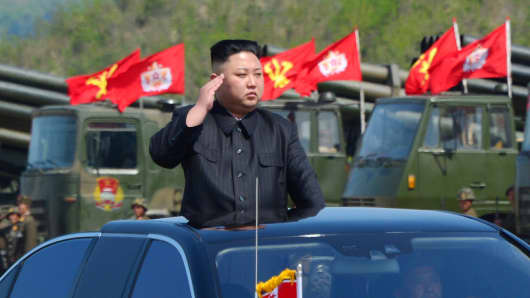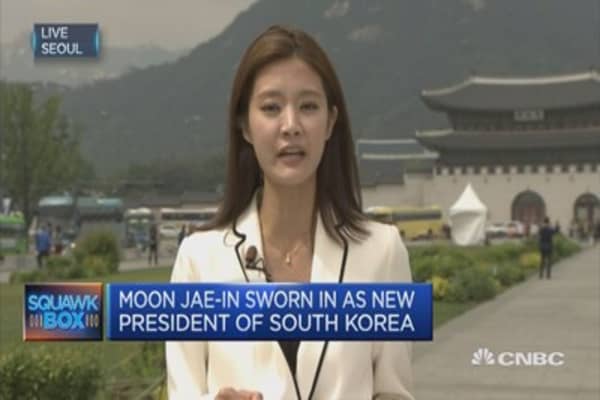“You’d think we’re going into a crisis with North Korea, and there’s no ambassador in Seoul, in Tokyo, in Beijing or an assistant secretary for East Asia. You wonder, beyond the tweets and what the White House says, how actually the work of the government is going to get done,” said Vali Nasr, dean of the John Hopkins School of Advanced International Studies and a former senior advisor on Afghanistan and Pakistan under Ambassador Richard Holbrooke.
The U.S. State Department website says that those major ambassadorships are “vacant” — as are the top U.S. diplomatic posts to India and Australia — even as smaller countries such as the Philippines have ambassadors in place.
In a statement to CNBC, the State Department pointed out that it has officials “serving in acting capacities” in those countries. The State Department deferred to the White House on senior nomination questions.
The White House did not respond to a CNBC request for comment.
“You worry that even if things are calm, you’re just one step away from a very big crisis,” Nasr said. He was speaking Wednesday evening at the Asia Society in New York.
“You cannot take on these challenges without having a government where you have people in place. It’s not possible.”
President Donald Trump has rocked longstanding U.S. policy in Asia, leaving allies in the region less certain about their relationship with the United States, while China takes advantage of the vacuum to grow as a regional power and take over as the arbiter of international standards. Against that backdrop, North Korea dictator Kim Jong Un has threatened various countries with nuclear attack.
“You cannot take on these challenges without having a government where you have people in place. It’s not possible,” Thomas Donilon, former U.S. national security advisor, said at the same event. He led U.S. efforts to impose existing sanctions on Iran.
“It is not possible to do that without dozens and dozens of diplomats around the world who are working every day on these things,” Donilon said. “So the staffing is a really big issue.”
The U.S. Senate confirmed Robert Lighthizer as U.S. Trade Representative late Thursday, more than 100 days after Trump’s inauguration.
Moon Jae-in takes 41.1% of the vote in S Korea election
Iowa Governor Terry Branstad awaits his confirmation as ambassador to China and only got out of the GOP-controlled Senate Foreign Relations Committee this week. Members of the committee have blamed incomplete paperwork for the delays.
Private equity executive William Hagerty wasn’t nominated as ambassador to Japan until March.
No record of a nominee for ambassador to South Korea appears on the White House website.
Of 557 key executive branch positions that must be confirmed by the Senate, the Trump
administration has failed to produce a nominee for 460
, according to a running tally from the Washington Post.
Of about 200 ambassadorial posts, 77 remain “vacant,” according to a May 10 document from the State Department.
Tillerson ‘bears some responsibility’
Analysts pointed out that the only confirmed State Department official is Secretary Rex Tillerson himself.
Tillerson “definitely bears some responsibility” for not nominating people for some key posts, Nasr told CNBC on Friday. He said he could not think of a previous case in which so many important posts had not been filled by the first few months of a new president.
“It does not signify competence or seriousness,” Nasr said.
To be sure, the heads of state themselves still dictate the tone of international relations overall.
“Ambassadors in Asia haven’t played a [major] role for quite some time,” Charles Freeman III, managing director at consulting firm Bower Group Asia and former assistant U.S. trade representative for China affairs.
Bower said the National Security Council and White House have played a greater role in Asian affairs, though he noted that good leadership at embassies is necessary for continuity in foreign policy.
Source:cnbc.com

